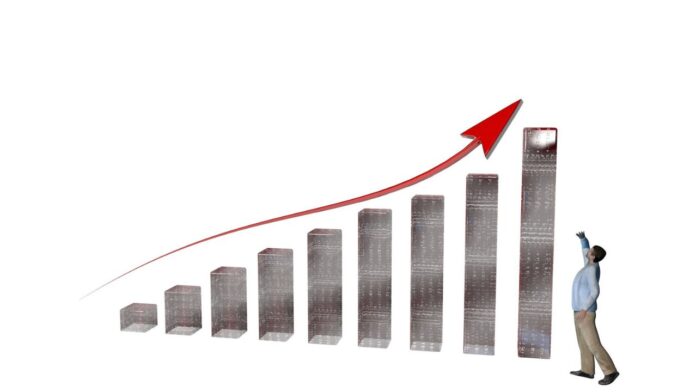Europe, a continent rich in history, diverse cultures, and economic dynamism, is a global powerhouse in business and commerce. From the bustling financial hubs of London and Frankfurt to the innovative tech scenes in Berlin and Stockholm, Europe’s business landscape is a mosaic of tradition and innovation. This article delves into the critical facets of business in Europe, examining the economic drivers, challenges, and the continent’s role in shaping the global business narrative.
Economic Powerhouses
Europe boasts several economic powerhouses that contribute significantly to the global economy. Germany, often referred to as the “economic engine” of Europe, is renowned for its manufacturing prowess, technological innovation, and robust export-oriented economy. The United Kingdom, with its historical ties to global trade and finance, continues to be a vital player despite its withdrawal from the European Union. France, Italy, and Spain also play pivotal roles in various sectors, contributing to Europe’s economic diversity.
The European Union: A Unified Market
At the heart of Europe’s business landscape is the European Union (EU), a political and economic union of 27 member states. The EU has established a unified market, enabling the free movement of goods, services, capital, and labor across its member countries. This integration has created a vast economic bloc, fostering collaboration and trade among nations while presenting unique opportunities and challenges for businesses operating within the EU.
Innovation and Technology Hubs
Europe stands at the forefront of technological innovation, with several cities emerging as vibrant hubs for startups and tech companies. Berlin, often dubbed the “Silicon Allee,” has become a hotspot for entrepreneurs and innovators, attracting talent from across the globe. With its thriving startup ecosystem, Stockholm has produced numerous unicorns in the tech industry. The emphasis on research and development and a supportive regulatory environment position European cities as competitive players in the global tech landscape.
Small and Medium-sized Enterprises (SMEs)
While large corporations dominate specific sectors, Europe’s business landscape is also characterized by a robust ecosystem of small and medium-sized enterprises (SMEs). These businesses, often family-owned, form the backbone of many European economies. SMEs contribute significantly to job creation, innovation, and regional development, vital in fostering economic resilience and sustainability.
Challenges and Opportunities
Europe’s business environment faces various challenges, including regulatory complexities, geopolitical uncertainties, and demographic shifts. The aftermath of the global financial crisis and the ongoing impact of the COVID-19 pandemic have also posed challenges for businesses across the continent. However, these challenges are met with resilience, and Europe continues to present numerous opportunities for growth and development.
Sustainability and Corporate Social Responsibility (CSR)
There has been a growing emphasis on sustainability and corporate social responsibility (CSR) in European business practices in recent years. The EU has set ambitious environmental targets, encouraging businesses to adopt sustainable practices and reduce their carbon footprint. This shift towards eco-friendly initiatives is driven by regulatory frameworks and consumer demand for ethically produced goods and services.
Financial Services and Banking
Europe is home to some of the world’s leading financial centers, including London, Frankfurt, and Zurich. The European Central Bank (ECB) plays a central role in monetary policy for the Eurozone, contributing to the stability of the European financial system. London’s status as a global financial hub, particularly in areas such as banking and insurance, has persisted despite the UK’s exit from the EU.
International Trade and Global Connectivity
Europe’s strategic geographic location has positioned it as a nexus for international trade. The EU’s trade agreements and partnerships extend globally, facilitating commerce and fostering economic ties with countries worldwide. The European business community’s ability to navigate international trade dynamics and capitalize on global markets is a crucial driver of the continent’s economic strength.
Brexit and Its Implications
The United Kingdom’s decision to exit the EU, commonly known as Brexit, has introduced a new dynamic to Europe’s business landscape. While the full implications are still unfolding, businesses on both sides of the English Channel are adapting to changes in trade regulations, supply chains, and cross-border collaborations. The evolving post-Brexit landscape requires companies to navigate new complexities and seize emerging opportunities.
In the vibrant landscape of European business, diverse sectors include traditional industries and the dynamic realm of online entertainment and betting. Platforms like Bet22 play a role in the continent’s various entertainment offerings, offering a comprehensive experience for those seeking excitement in sports betting and casino gaming. The accessibility and user-friendly interface of Bet22 make it a go-to destination, providing users with a seamless blend of entertainment and the thrill of online betting. As part of the ever-evolving European business tapestry, platforms like Bet22 contribute to the region’s diverse and innovative economic ecosystem.
Europe’s business landscape is a tapestry woven with tradition, innovation, and resilience. The continent’s economic powerhouses, commitment to sustainability, and technological prowess contribute to its global significance. As Europe navigates ongoing challenges, including the aftermath of Brexit and the recovery from the COVID-19 pandemic, businesses adapt and evolve, showcasing the dynamic nature of the European business ecosystem. With a rich history as a global economic player, Europe continues to shape the future of business, offering a compelling narrative of collaboration, innovation, and enduring financial strength.



















![10 Countries With the Best Healthcare in the World [Statistical Analysis] Countries With the Best Healthcare in the World](https://articleify.com/wp-content/uploads/2025/07/Countries-With-the-Best-Healthcare-in-the-World-1-150x150.jpg)









